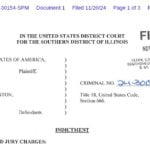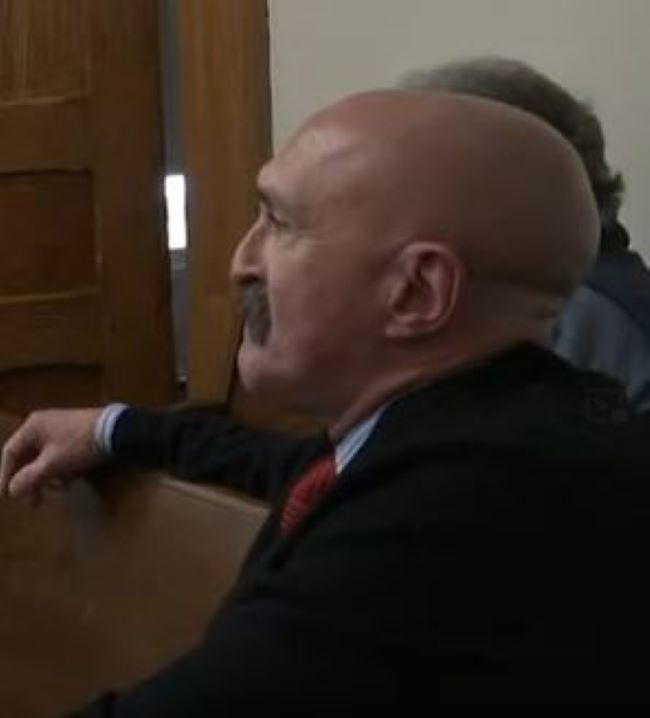Shelby Co. (ECWd)
During the Shelby County farm committee meeting, a question was asked of the Assistant State’s Attorney Jay Scott. The question was pertaining to legislative intent as it relates to interpreting laws on the books.
Mark Bennett asked, “..intent, doesn’t it have to be written in the statute?”
Assistant State’s Attorney Jay Scott: “The floor debate is how you determine what the intent of the statute is”
Scott’s response is an example as to why Shelby County, and some would argue Macon County, where he was the former State’s Attorney, is plagued with problems. Legal advice conflicting with not only Illinois Appellate Court cases but dozens of Illinois Supreme Court cases tell the general public you should not follow his legal advice.
A simple search on Casetext for keywords related to Bennett’s question is most telling but before we dive into that truth, what does the former US Supreme Court Justice Antonin Scalia say about legislative intent?
“A government of laws, not of men, means that the unexpressed intent of legislators must not bind citizens. Laws mean what they actually say, not what legislators intended them to say but did not write into the law’s text for anyone (and everyone so moved) to read.”– Antonin Scalia – A Matter of Interpretation
Board member Bennett summed up what Justice Scalia said in his comments, in fact, he nailed it. The interaction from the meeting can be viewed below and after viewing it and reading the court cases on the subject, we are confident people will realize how wrong Scott was with his claim.
It’s simple, legislative intent is what the law says it is but please don’t take our word for it. Read the legal cases that speak to this issue.
Over 1000 Illinois Supreme Court cases point to a Cardinal Rule when speaking to the topic of legislative intent. We only cite one and urge people to read a bunch of them to grasp how wrong the advice was.
The cardinal rule of statutory construction is to ascertain and give effect to the intent of the legislature. The best indication of that intent is the language of the statute itself, and where that language is unambiguous, the statute must be enforced as written. Paszkowski v. Metropolitan Water Reclamation District of Greater Chicago, 213 Ill. 2d 1, 6-7 (2004). This court cannot depart from the plain language of the statute by reading into it exceptions, limitations, or conditions not expressed by the legislature. In re Michelle J., 209 Ill. 2d 428, 437 (2004).
What does the Illinois Supreme Court say using a keyword search of “legislative intent“? In 24 cases found in the link, it’s clear once again Jay Scott’s response conflicts with the highest court in our state.
The controlling principles are familiar. The cardinal rule of statutory interpretation, to which all other rules are subordinate, is to ascertain and give effect to the intent of the legislature. In determining the legislative intent, a court should first consider the statutory language. This is the best means of determining the legislative intent. People v. Hickman, 163 Ill.2d 250, 261 (1994); People ex rel. Scott v. Schwulst Building Center, Inc., 89 Ill.2d 365, 371 (1982). A court must consider the entire statute and interpret each of its relevant parts together. Bonaguro v. County Officers Electoral Board, 158 Ill.2d 391, 397 (1994); Castaneda v. Illinois Human Rights Comm’n, 132 Ill.2d 304, 318 (1989); People v. Wallace, 57 Ill.2d 285, 289-90 (1974). Where the statutory language is clear, it will be given effect without resort to other interpretative aids. People v. Sheehan, 168 Ill.2d 298, 305 (1995); Hickman, 163 Ill.2d at 261.
Not convinced Jay Scott’s advice is in conflict with our high courts?
The best evidence of legislative intent is the language of the statute –
The fundamental rule of statutory interpretation is to give effect to the intention of the legislature. A court first looks to the words of the statute. The language of the statute is the best indication of the legislative intent. When the statutory language is clear, it must be given effect without resort to other tools of interpretation. In interpreting a statute, it is never proper for a court to depart from plain language by reading into a statute exceptions, limitations, or conditions which conflict with the clearly expressed legislative intent. Nottage v. Jeka, 172 Ill.2d 386, 392 (1996); Illinois Graphics Co. v. Nickum, 159 Ill.2d 469, 479 (1994).
Scott should have stuck to his claim of retiring because it’s time for something new. (“recently determined that it is time for something new“. )








4 Comments
JIMBO
Posted at 01:36h, 22 JanuaryAs a prosecutor in Macon County, A. Jay Scott, is/was subject to the 6th judicial district chief’s Local Rules of Practice and the rules established by the Attorney Registration and Discipline Commission. In two terms as the county’s States Attorney, acting in his own words as “chief law enforcement agency,” Scott advanced no programming to enforce the judicial district chief’s Local Rules of Practice. Also, Scott would know that the ARDC does not provide any enforcement mechanisms for Illinois various judicial districts Local Rules of Practice. Scott claiming ownership as the chief law enforcement agency while knowing and giving allowance to Local Rule of Practice violators (i.e. local bar associates) is, at best, unprofessional.
Indirect and harmful effects are likely to arise when Local Rules of Practice violators are left unchecked by prosecutors, especially upon an “aggressive” prosecutorial.
Now, “Something different” could be Scott and his then 1st assistant Kronke developing a Local Rule of Practice enforcement program; and to commence with such a program where they are in the 4th judicial district, Shelby county.
I’ll put in to support such a worthwhile program with a schedule of disciplinary measures:
1st Violation: Formal warning, copied to the circuit clerk, sheriff, presiding judge and district chief
2nd Violation: Fine and formal warning copied to circuit clerk, sheriff, presiding judge and district chief with loss of local courthouse security privileges. Courthouse security privileges means use of electronic devices such as computer and cell phone in the courthouse.
3rd Violation: Fine, formal warning copied to circuit clerk, sheriff, presiding judge and district chief with loss of courthouse security privileges throughout district; and a written referral to the Attorney Registration and Disciplinary Commission.
Robert O Bogue
Posted at 12:19h, 21 JanuaryRight on Michael!! Under the present system, state’s attorneys in Illinois are god and nothing less.
If, if, Illinois lawmakers would amend, rewrite, or construct a way, in which all states attorneys (prosecutors) are allowed to travel the state from one county to another, with the authority to prosecute criminals anywhere in the state then this ship would quit taking on water and begin to float again.
As it stands, the deal making among friends and states attorneys, to limit prosecution for the benefit of the click continues. It’s called protection.
Michael Hoit
Posted at 15:58h, 19 Januaryif you have not yet figured it out yet states attorneys are merely criminals here in Illinois the law never applies to them or their corrupt cronies.
they work to cover up criminal behavior within this state when the offender is a public official unless there is a personal reason not to protect and cover up cases of serious misconduct
I’ve personally experienced this very thing here in vermilion county by the Criminal states attoney Lacey ..
This state is a cesspool of corrupt cop’s judge’s lawyer’s politicians and county /state officials
they are all crooked criminals in this state
Dave
Posted at 14:58h, 19 JanuaryThe original meaning and intent of a law must stand.